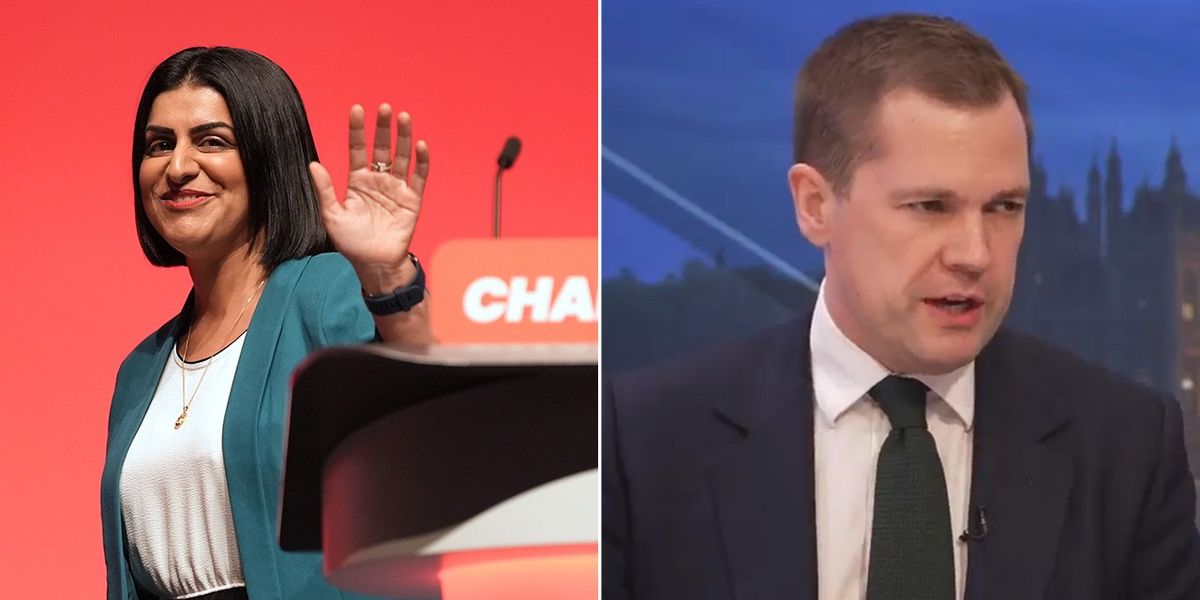JK Rowling appeared to criticise a “mad” ruling in a trans writer case by the Press watchdog against The Spectator.
The Independent Press Standards Organisation (Ipso) upheld a complaint by Juno Dawson, a trans author, over an article calling her “a man who claims to be a woman”.
The watchdog found that the description breached the Editor’s Code of Practice by discriminating against Dawson’s gender identity, even though it was not inaccurate.
Wading into the row on Wednesday, Rowling shared posts on X, formerly Twitter, which criticised the ruling as “mad” and warned that no publication should be forced to “assert a lie”.
The Telegraph understands that The Spectator is evaluating its relationship with Ipso in light of the decision, which was condemned by Michael Gove, the magazine’s new editor, as “outrageous”.
Juno Dawson is a man pretending to be a woman. That’s the truth. No one should be compelled to assert a lie. Look where that’s got us. https://t.co/1fyHHicIqG
— WeAreFairCop (@WeAreFairCop) December 10, 2024
The article in question was written by Gareth Roberts and focused on the stance taken by Nicola Sturgeon, the former Scottish first minister, on transgender rights.
The piece stated that Ms Sturgeon “was interviewed by writer Juno Dawson, a man who claims to be a woman, and so the conversation naturally turned to gender”.
Dawson complained to Ipso about this reference, alleging it was inaccurate, discriminatory and harassing.
Ispo rejected the claims about harassment and inaccuracy but upheld the complaint about discrimination.
Justifying the decision, the watchdog’s committee stated that “referring to the complainant as a man ‘claiming’ to be a woman was personally belittling and demeaning toward the complainant”, in a way that was both “pejorative and prejudicial”.
This overtook Mr Roberts’ “right to express his views on the broader issues of a person’s sex and gender identity”, Ipso stated.
‘An outrageous decision’
Writing in The Spectator, Mr Gove said he had “no doubt this is an outrageous decision, offensive to the principle of free speech and chilling in its effect on free expression”.
It is understood that the magazine is considering operating outside of the current system of Press regulation rather than adopting an alternative regulator.
The potential move was welcomed by free speech campaigners including Toby Young, the director of the Free Speech Union.
He told The Telegraph: “The fundamental problem with Ipso’s latest judgement is that it’s gone beyond its remit of guarding against inaccuracy and press intrusion and made a political decision.
“It has censured The Spectator for publishing an article that is in no way inaccurate or intrusive but which it disapproves of for political reasons. If a press regulator penalises a newspaper or magazine just because it doesn’t like its politics, it is no longer fit for purpose.”
Mr Gove, who took over as editor of The Spectator from Fraser Nelson in October, after the article was published, added that defending free speech was not “some quixotic cause to be defended as a matter of purist principle”, but instead “has saved lives”.
‘Ipso is not fit for purpose’
Helen Joyce, the director of advocacy at human-rights charity Sex Matters, called Ipso’s guidance “biased and illogical”.
She told The Telegraph: “When it comes to reporting on issues of sex and gender, Ipso is not fit for purpose. It is supposed to be impartial, but its ruling on The Spectator put gender ideology ahead of accuracy about biological sex.
“Ipso’s guidance is biased and illogical. Journalists and editors feel under pressure to accept the fringe belief that people can change sex as settled fact. The result is that excellent reporting is turned into gobbledegook during editing.
“Readers are routinely confused and misled about serious issues: told that male sex criminals are women and that there is no biological reason for excluding male athletes from women’s sports, and left in the dark regarding the lack of evidence underpinning child gender medicine.”













